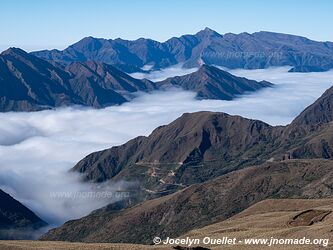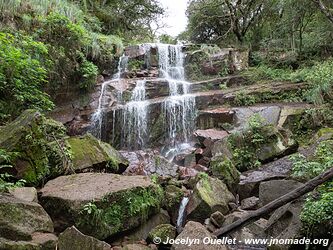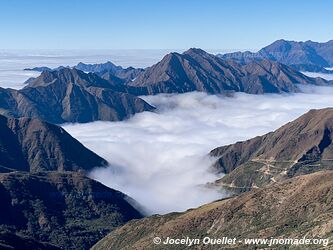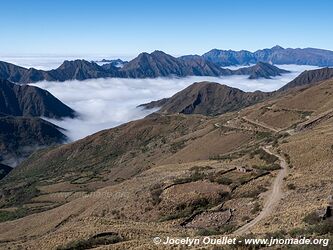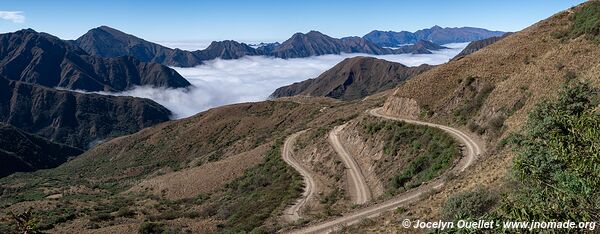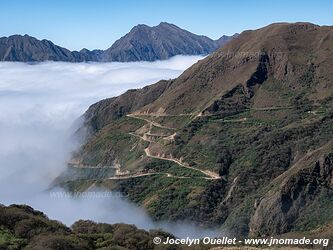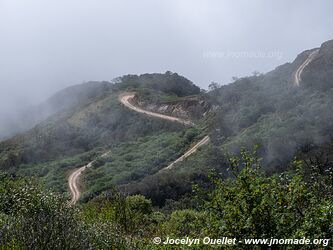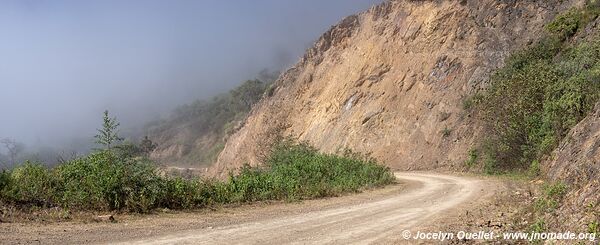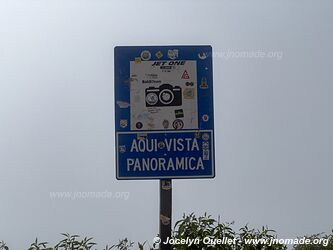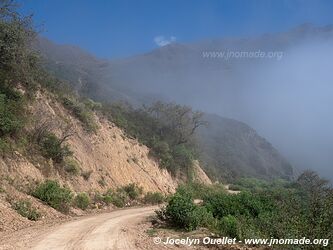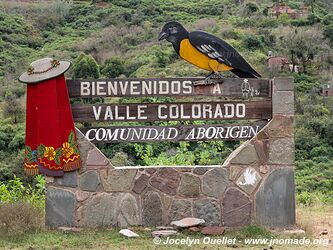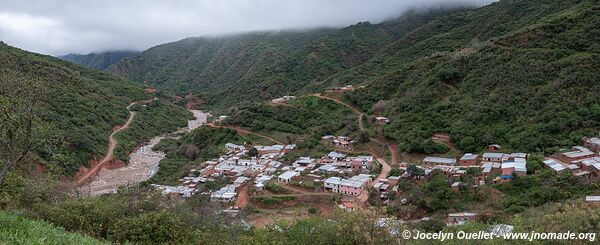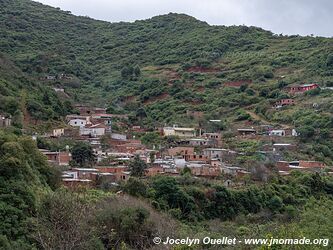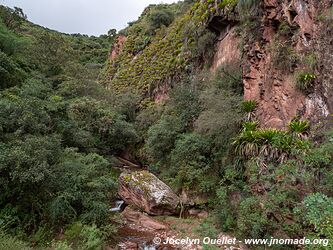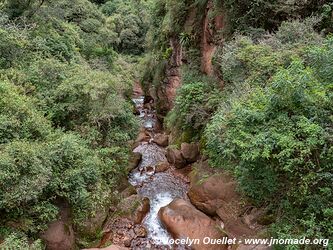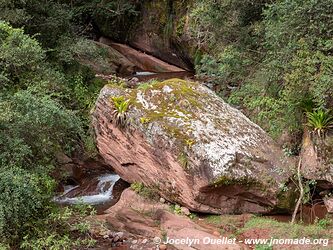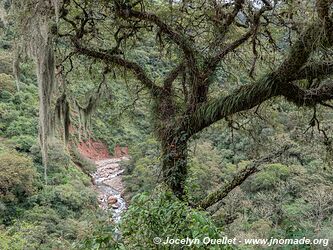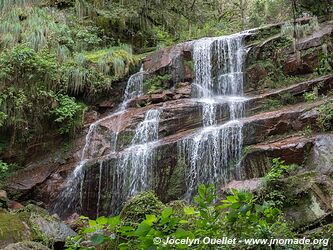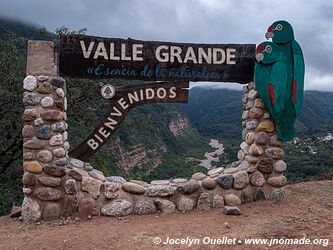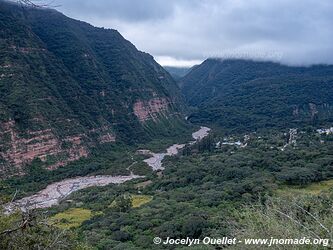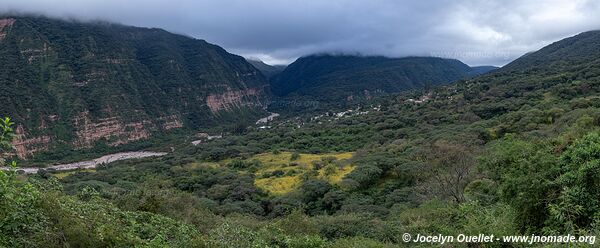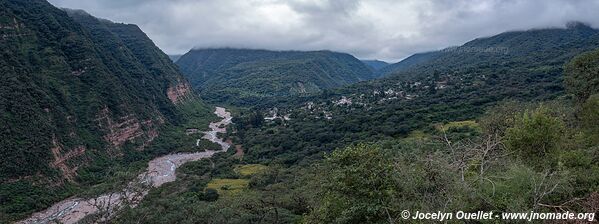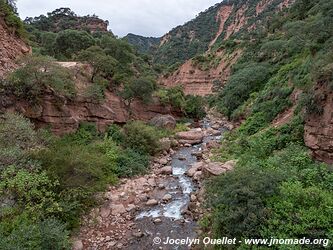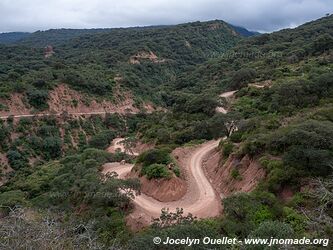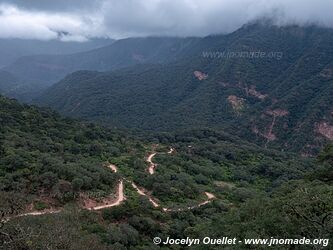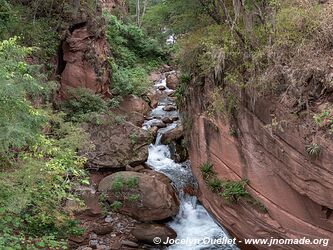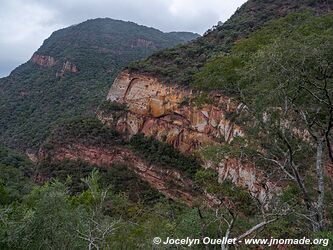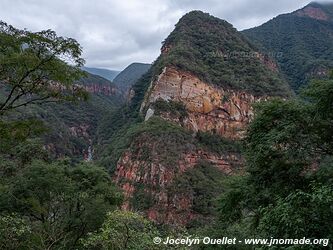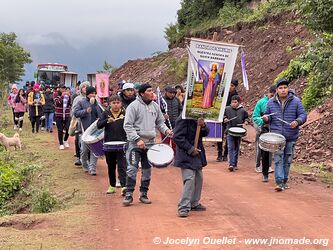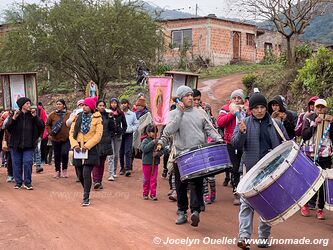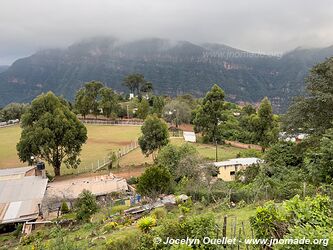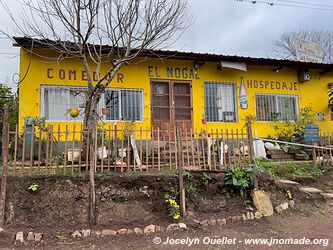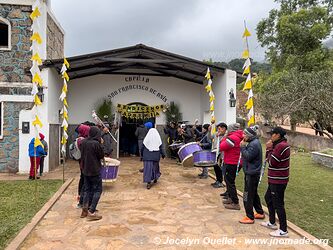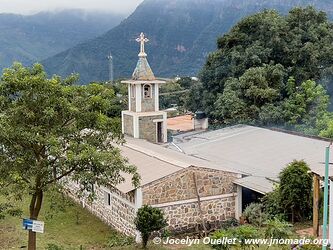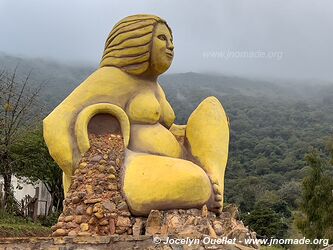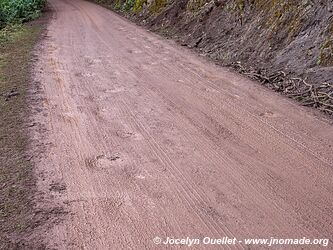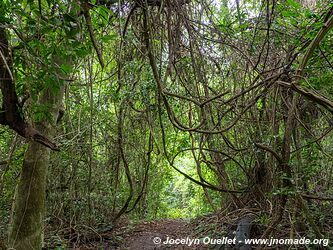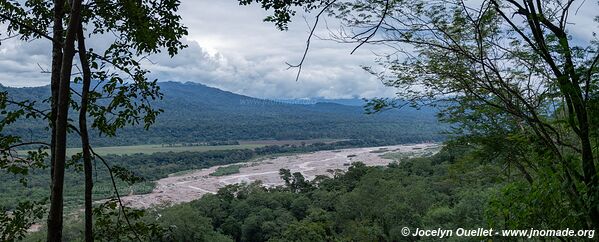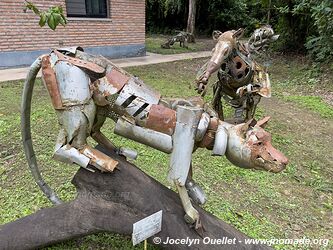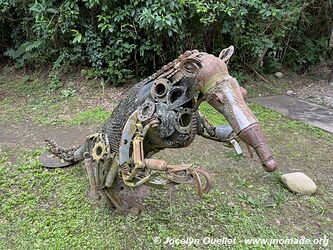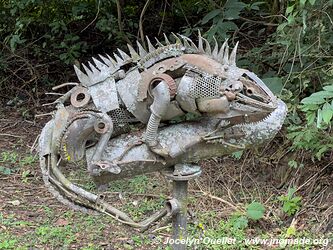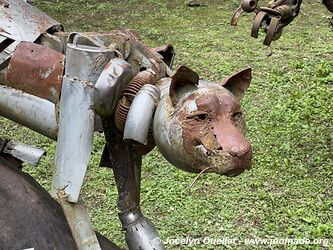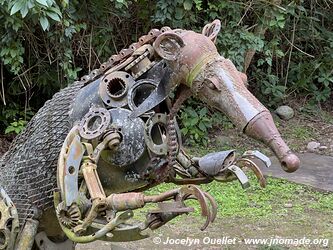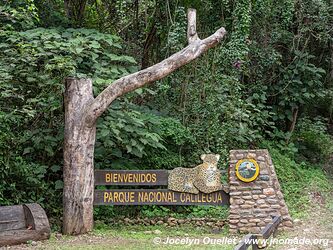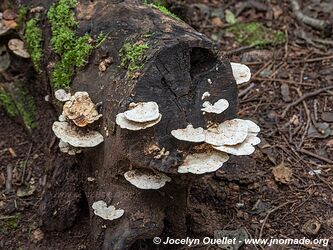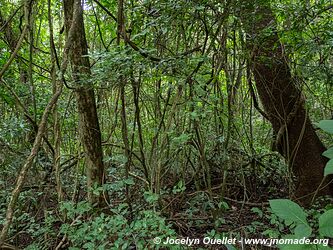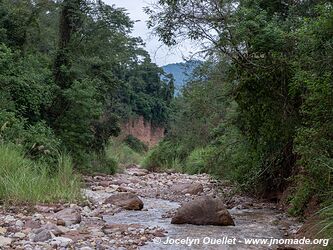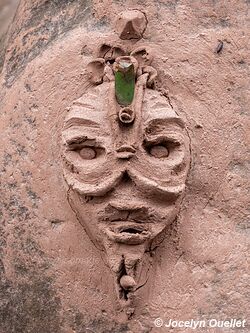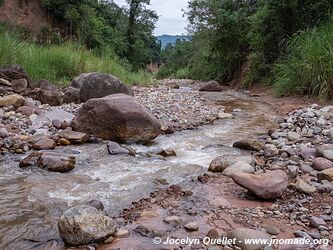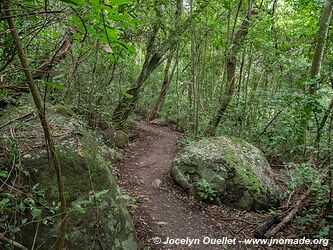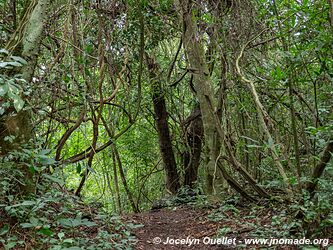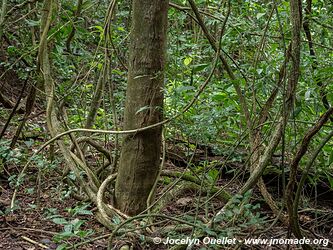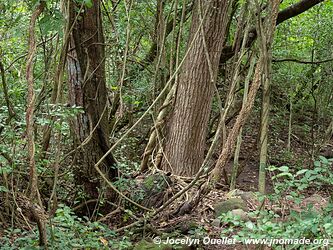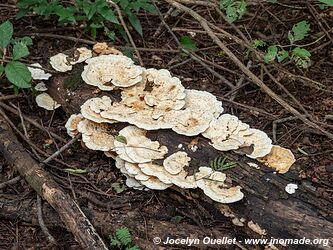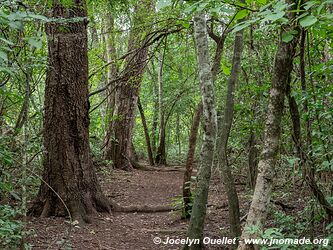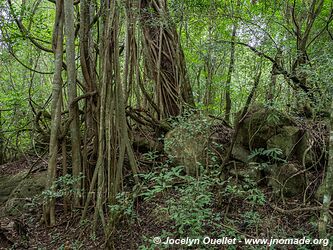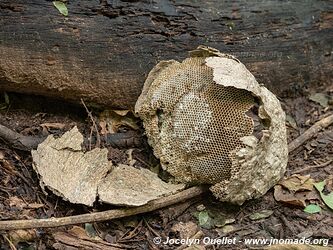From the Puna to the Yungas
The spectacular route from Santa Ana, in the Puna, descends to the lowlands through the Yungas. Over a distance of around 110 kilometres, you pass through a wide range of ecosystems, from an altitude of 3,200 metres to a plain 500 metres above sea level.
The Puna is a vast region of the Altiplano in the Andes mountain range. It is generally defined as an area of high plateaux at altitudes ranging from 3,200 metres to over 4,800 metres. This vast region covers parts of Argentina, Peru, Bolivia and Chile. In Argentina, the Puna is characterized by a very cold, very dry climate and contains several volcanoes, plateaux, lagoons and salars (salt deserts). The word Puna comes from the Quechua language and means high altitude area.
The Yungas are characterized by Andean forest or mountain jungle at altitudes of around 500 to 3,000 metres, depending on the definition. The Yungas are found on the slopes of the Andes mountain range in northern Peru, Bolivia and northern Argentina. These cloud forests are generally humid, with temperate to warm temperatures. They are home to a rich biodiversity.
The Yungas
Under the cloud cover, I discovered the green forest and a warm, humid climate. After a few weeks of cold and a very dry climate, the change is impressive.
As well as the heat and humidity, you realize that the smells of nature are now much stronger than on the high plateaux. You have the feeling of being invaded by the scent of trees, plants and water.
I reached the village of Valle Colorado at an altitude of 2,000 metres.
Village of San Francisco
In the village of San Francisco, a procession in honour of Nuestra Señora de Santa Barbara or Our Lady of Santa Barbara [of Nicomedia].
Descent to Calilegua National Park
During the night, there was a bit of rain, and the track turned into slippery terrain with a nice layer of mud on the surface. On a motorbike, this kind of road can be very hazardous, as some sections are like an ice rink.
The locals reminded me to be very careful and mentioned that a Brazilian motorcyclist had fallen down the precipice along the track over a month before. He survived, but was still in the hospital at the time of my visit.
Everything went well, and I arrived safely without any problems... apart from being covered in mud.
Calilegua National Park
Calilegua Park was created in 1979 to protect the subtropical rainforests that thrive at the foot of the Andes mountain range. The park is home to almost 50% of Argentina's known bird species, as well as large mammals such as the jaguar, puma, ocelot and tapir.
The park covers an enormous area of 763 km2, but despite this it contains only a few trails for hiking.






